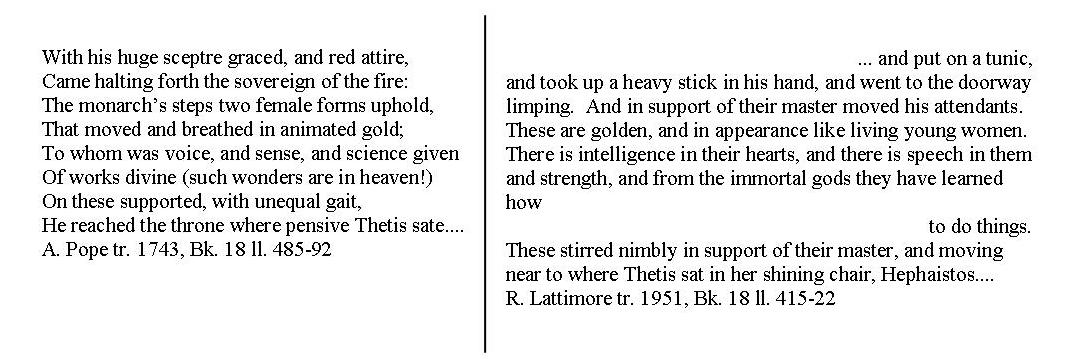by John Hertz: (reprinted from Vanamonde 1163 in honor of National Poetry Month)

These two translators achieved differently. Each in his own Introduction speaks for himself. Garry Wills, “On Reading Pope’s Homer” New York Times Bk. Rev. 1 Jun 97 p. 22, reviewing Shankman’s 1996 ed’n, applauds Pope who “alone equals the original in its ceaseless pour of verbal music” (p. 22), comparing Lattimore, “the most literal of the modern verse translators” (p. 33) — no discredit for me the fan of Nabokov (1899-1977) but answering, as Allan Sherman put it on another occasion, “What can he do that I can’t?” (“Shticks of One and Half a Dozen of the Other” no. 4; My Son the Celebrity, 1963). Homer’s Iliad three millennia ago (just when and how it was composed remain vexed questions) being human action complicated by Greek gods, this incidental moment of science fiction is striking.
Discover more from File 770
Subscribe to get the latest posts to your email.

I think Saberhagen must have read these before he wrote Berserker Planet….
I have a copy of Pope’s ILLIAD. I read it when I want to go to sleep. It never fails. And I never recall anything I’ve read.
Hephaistos – 1st Science Fiction engineer/hero.
Prometheus was heroic, but no engineer.
Here’s Chapman’s translation, that so moved Keats
Bk XVIII ll 371-377